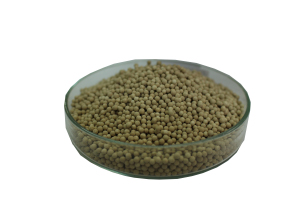Molecular sieve is a synthetic zeolite that selectively adsorbs and desorbs water molecules and other polar molecules from gases and liquids.
The desiccant is made from a crystalline aluminosilicate with a SiO2:AI2O2 ratio of 2:1 and is also known as zeolite or mol sieve. Different pore sizes, determined by linking AIO4 and SiO4 tetrahedra together, determine the type of Molecular Sieve.
High Absorption Capacity Desiccant
The desiccant comprises a three-dimensional network of alumina and silica tetrahedra, which create a lattice-like structure with uniform micropores. These micropores act like a sieve, selectively trapping and releasing molecules based on size, shape, and polarity.
Molecular sieves have various applications, including reducing humidity levels, dehydrating, and selectively purifying and separating gases and liquids. They can absorb up to 22% of their weight and have customised pore openings that enable them to separate specific molecules.
Molecular sieves are versatile and can be used in filtration systems or sachets to reduce humidity levels. They can withstand temperatures up to 300°C, making them suitable for machinery applications.
Reduce Humidity and Purify Gases
Molecular sieves can be regenerated at high temperatures when exposed to moisture over a long period. To restore their absorbent capacity, heat them to an optimal temperature of 200°C to 350°C.
Molecular sieves with high absorption capacity, mechanical strength, and low attrition loss are available in different forms, including pellets, spheres, and powders, for use in a wide range of applications.
- Absorbs 22% of its weight
- Can be used in temperatures up to 300ºC and is best used in machinery operations
- Synthetic zeolite designed for selective adsorption and desorption of polar molecules
- Uniform micropores act like a sieve based on size, shape, and polarity
- Available in a range of pore sizes for optimal performance
- Ideal for natural gas drying, air conditioning, refrigeration, and chemical processing
- Effective in removing impurities from liquids such as ethanol and methanol
- Manufactured to the highest standards for consistent performance and reliability
- Mesh size: 8-12, 4-8, or 3-5
- Bulk density: 0.65-0.75 g/cm3
- Pore volume: 0.28-0.30 cm3/g
- Adsorption capacity: >20% by weight
- Water content: <1% by weight
- Size: typically in the form of small beads or pellets
- Chemical composition: typically composed of alumina and silica tetrahedra
- Regeneration temperature: typically 200-350°C for desorption of adsorbed molecules.
- Type 3A: Used for drying and purifying gases and liquids with a polar nature, such as ethanol, methanol, and natural gas
- Type 4A: Effective in removing water and carbon dioxide from natural gas, air, and other gases and liquids
- Type 5A: Used for the separation of gases and liquids with a molecular diameter of up to 5 Angstrom, such as nitrogen and oxygen
- Type 13X: Used for the adsorption of larger molecules, such as water, carbon dioxide, and hydrocarbons, in natural gas and petroleum industries
- Type 10X: Ideal for the removal of impurities from the air, such as carbon dioxide, water, and nitrogen
- Type LSX: For separating light gases, such as helium, hydrogen, and carbon monoxide.
Molecular Sieve Product Brochure: Download


